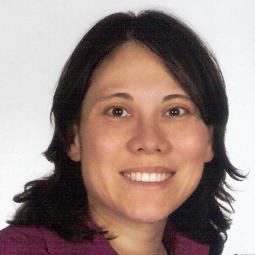Member Profile

Membership type: full
Olga Lucia Lopez Acevedo
Country of origin: Colombia Currently in: Colombia, Medellin General field of specialization: Physics-
Degrees
2006 Doctorate Physics2002 Master Physics2000 Undergraduate Physics -
Current Research Activities
Physics
Olga Lopez Acevedo is currently a Professor in the Physics Institute of Universidad de Antioquia (Colombia). Her research focuses on nanobiomaterials discovery supported by computer simulations. In particular, she is expert in the electronic properties of metal-organic nanomaterials and in the development of computational methods for large scale systems. She is leading the research group Max Planck Tandem Group in Biophysics in the Universidad de Antioquia. Previously, she won the young research award Academy of Finland Fellow and was leader of the Computational Soft and Molecular Matter group in the Center of Excellence for Computational Nanosciences COMP in Aalto University Finland.
Publications resulting from Research:
Materials discovery and modeling
Silver clusters stabilized by DNA complexes are nanobiosystemas that have attracted much attention due to their high fluorescence, good photostability, low toxicity and low cost. Lopez Acevedo’s group in collaboration with X. Chen in Aalto University have determined computationally several atomic structures for the silver clusters stabilized in DNA complexes that reproduce the chiroptical measured spectrum. In addition, they proposed the existence of novel stabilizing hydrogen bond in metal-DNA helices termed “interbase bond” linking neighboring bases in the DNA ladder. The bond is crucial in the stabilization of such organo-metallic nanomaterial and has been confirmed later by crystal determination. Related publications as corresponding author:
Physical Review Materials 4 (6), 065601 (2020).
Journal of Physical Chemistry Letters 9 (16), 4789 (2018).
Journal of Physical Chemistry Letters 6 (20), 4061 (2015).
As postdoctoral researcher in Hannu Häkkinen’s group she participated in the proposal of the superatom model to explain the stability of ligand protected metal clusters. The model opened the path to computational prediction of the atomic configuration of metal organic clusters of which she proposed the structures of Au38SR24 and Au144SR60. As first author she also applied the concept of superatom to model catalytic CO2 conversion.
Related publications as first author:
Journal of the American Chemical Society 132 (23), 8210-8218 (2010).
Nature chemistry 2 (4), 329 (2010).
Journal of the American Chemical Society 131 (35), 12573-12575 (2009).
Method Development
Orbital-free DFT is a fast quantum method that have potential to achieve simulation of millions of atoms but requires improvement of precision. Lopez Acevedo and PhD student J. Lehtomäki showed the use of an exact constraint coming from semiclassical physics allows the removal of empirical parameters of gradient-based kinetic density Orbital-free functionals. In addition Lopez-Acevedo’s group have proposed and implemented a method to access an all-electron calculation of the orbital-free Density Functional. Related publications as corresponding author:
Physical Review B 151 (24), 244101 (2019).
Journal of Chemical Physics 141 (23), 234102 (2014).
Lopez Acevedo’s group proposed a statistical way to remove spurious exchange-correlation dependent excitations in Circular Dichroism simulations. The method allows the accurate simulation of Circular Dichroism of molecules of intermediate size, like nanobiosystems, that can be used to assess computational atomic predictions. Related publication as corresponding author:
International Journal of Molecular Sciences 19 (8), 2346 (2018).
Current profession
Current professional activities type:Teaching
-
Other Awards
May 2014Academy Research FellowAcademy Research Fellows work on research plans that have been rated to be of a high scientific quality. They have built extensive research networks, and the funding allows them to develop their academic leadership skills and establish themselves as independent researchers in the international scientific community. https://www.aka.fi/en/research-funding/funding-opportunities-at-a-glance/funding-for-individual-researchers/






